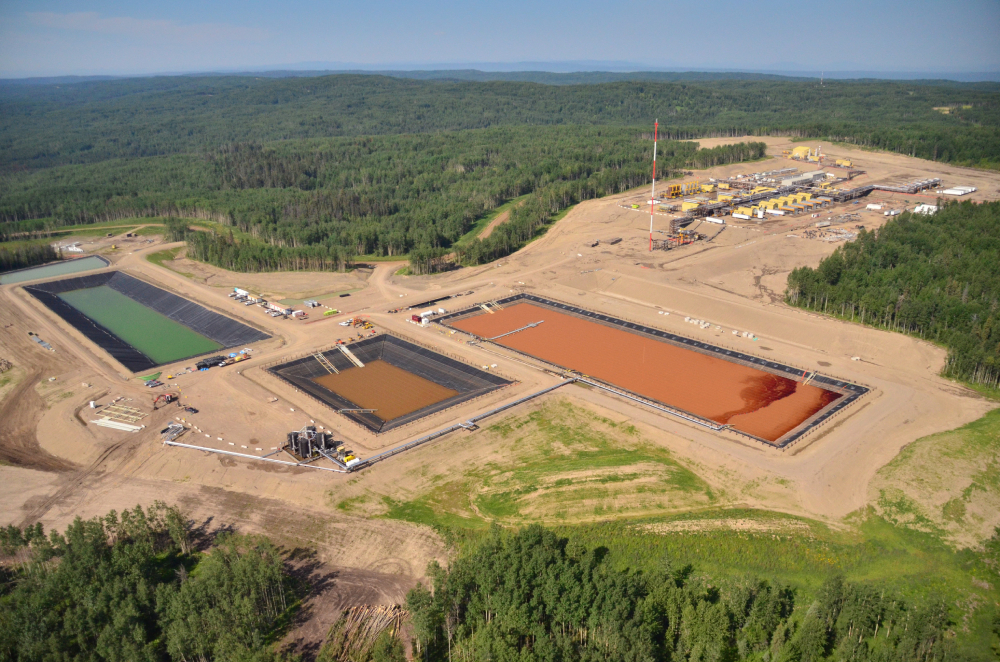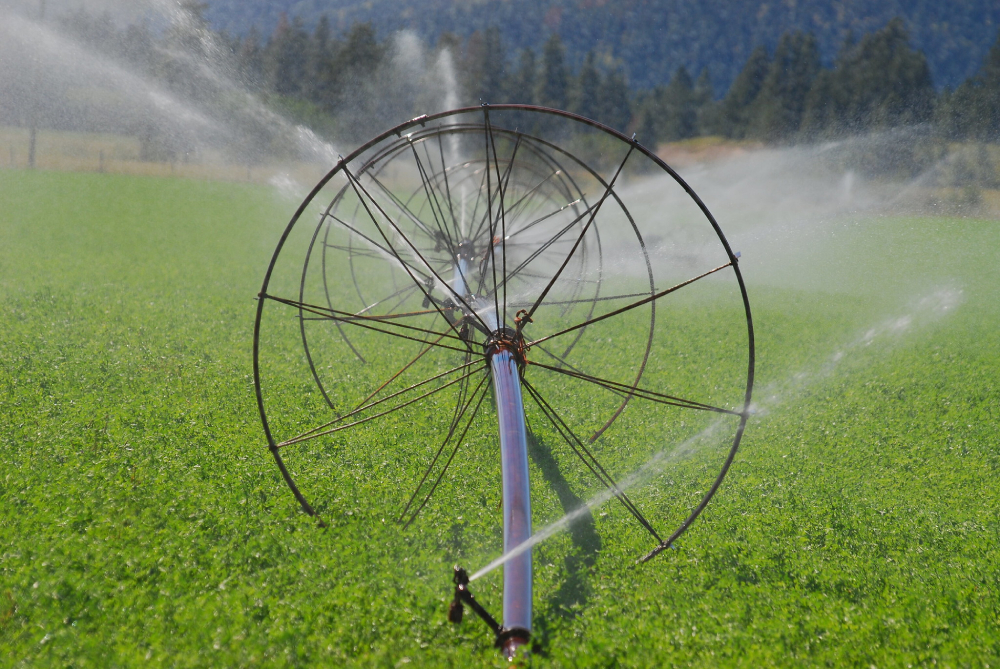The way it looks to David Slade, a water-well driller with 50 years of experience, some 15,000 British Columbia groundwater users are going to become criminals overnight next March.
“That certainly seems to be the trajectory we’re on now,” said Slade, who is based on Vancouver Island and is a past president of the B.C. Groundwater Association.
Existing users of groundwater — generally from wells or dugouts — for agriculture, industry or business have until March 1 to get licences. So far, fewer than one-quarter of the affected water users have applied. People using well water for household use are exempt from the requirement but are encouraged to register their wells to help government manage the resource.
“I don’t know if it’s willful ignorance, or just people are ignoring it in hopes it will go away,” Slade said.
Former civil servants and others with knowledge of the situation are warning that few people are aware there is a crunch coming that could have severe consequences for water users, food security and the wider economy.
Even people like Slade who believe the change is badly needed say the government has bungled its implementation.
“I think there’s a lot of frustration all around, and it’s because the government, in my mind, hasn’t taken this file seriously,” said Slade. “It’s a big story but it hasn’t gotten much traction. It’s going to be a big story.”
The issue flows from 2016 when the B.C. government brought the Water Sustainability Act into force with a goal of updating the province’s strategy for protecting, managing and using water.
While there were criticisms of the law as it was being developed, environmentalists and others long advocated for regulation of groundwater use, particularly with climate change increasing the risk of drought.
The goal was to allow the government to allocate water use so that streams and aquifers can be managed to keep them sustainable, says Mike Wei, who was involved in the act’s development as the program lead for groundwater and deputy comptroller of water rights. He retired from the government in 2018 and still works as a consultant.
Groundwater is a shared resource that many different users are drawing on — including some major users like agriculture, the oil and gas industry and bottled water companies. Their collective use can put pressure on the resource, depleting aquifers.
Licensing users is a step towards measuring how much water they are using, allowing the government to manage the resource.
“It’s the little day-to-day things that we do or don’t do that will determine the sustainability of the water resource,” Wei said, adding that water management has far-reaching impacts, with links to climate change, fish habitat, food security and recovery from the COVID-19 pandemic.
Under the new rules, anyone drawing on groundwater for purposes other than household use has to get a licence and begin paying fees. The law applies to farms both big and small, and also to businesses of any size that draw water from a well.
Existing users, some of whom have been drawing groundwater for generations, had a three-year transition period to apply for a licence. The idea was to recognize their historic use and bring them under the regulations, but with fewer requirements than new users would face.
In 2019, when that special treatment was set to end, the government extended the deadline and gave users until March 1, 2022, to apply.
But as of the end of July, the government says just 4,125 existing water users have applied. The province estimates there are 20,000 users; others say there could be twice that many.
If that pattern holds and B.C. enforces the law, the consequences will be serious for individual water users and wider society.
After the deadline, the law requires anyone without a licence to turn off their water, apply for a licence and wait until it is granted. The process can take years and may require expensive studies to show there is enough water available. There’s no guarantee the licence will be granted. Water rights are based on seniority, Wei says. That means someone who misses the deadline to get their historic use recognized would go to the back of the line behind other applicants. “If you miss it you’re done,” he said.
Their application would be scrutinized, and they could be compelled to provide technical assessments required under the new law, which is timely and expensive.
While they wait, it would be illegal for them to use the water, Wei warns.
In places where water use is already fully allocated — as is the situation in some of the more populated parts of the province, including areas of the B.C. Interior, Vancouver Island and the Lower Mainland — they might not be able to get a licence at all, he says.
Bigger businesses, such as the companies selling bottled water, likely have the resources to keep up on changing government regulations and have probably applied, Wei notes.
But many of the small businesses and farms don’t understand what’s happening, and the government hasn’t done enough to help them understand that they are at risk of losing their access to water, he said.
“It’s the small businesses that I’m really worried about,” said Wei. “They don’t know what the consequences are.”
If large numbers of users miss the deadline the impact could be massive, says Donna Forsyth, who was a legislative advisor for the B.C. Ministry of Environment when the act went through. She has since retired.
Forsyth has been bringing the matter to the attention of various cabinet ministers and officials, including Agriculture, Food and Fisheries Minister Lana Popham, but hasn’t received any response suggesting anyone understands the gravity of the situation.
“We’ve got this huge potential for a serious gap in our food production, and the urgency of the situation is not being communicated,” said Forsyth. Farmers and ranchers could be left without water needed for irrigation.

“We also have potentially thousands of non-food related businesses that will be impacted in the same way, and the combination will seriously impact the success of the B.C. recovery plan.”
The Forests, Lands, Natural Resource Operations and Rural Development Ministry, headed by Kootenay West MLA Katrine Conroy, is responsible for water licensing.
In an emailed statement to The Tyee, the ministry didn’t respond directly to questions about what the government has done to let water users or the public know about the change and what else it may be planning to do to raise awareness.
People who think they may need a water licence should visit the government’s website, the statement said. People can apply online or contact FrontCounter BC for help.
The ministry did, however, confirm the serious consequences of missing the deadline.
“Existing groundwater users who have not applied by the deadline must stop using groundwater and will lose recognition of their historical date of first use,” the statement said. “That historical date is important because during water shortages older licences get priority access to water.”
It added that missing the deadline “could also be costly” due to fines for using groundwater without a licence, added application fees and the cost of additional studies to support the application.
Application fees are waived for existing groundwater users who apply before the March 1 deadline, the statement said.
The government needs to stop pretending that everything is going to go smoothly, Forsyth says, something that it could do by stepping up its communications and doing more to enforce the law in situations where people are illegally using water.
Wei says the government should be checking for compliance with the law and sending a signal that it is serious about managing water.
The situation requires leadership, he says, and politicians need to know it has the potential to become a critical problem.
“The minister needs to know this is going to be politically untenable for them,” he said.
Doug Geller, a principal hydrogeologist with Western Water Associates based in Vernon, B.C., agrees the government’s implementation of the new law has been ineffective.
“That deadline is definitely looming,” he said.
The low number of groundwater users applying reflects the lack of a clear message from the government and the fact many existing users don’t see the benefit, Geller said, adding that many people are cynical about the government’s intentions and see it as a money grab.
Existing users are required to pay annual rentals retroactive to Feb. 29, 2016, the date the act came into force. Annual rental costs depend on the purpose for the water’s use and the quantity of water. There is an online rental estimator to determine how much water rent may be payable.
Geller says some doubt the government will have the appetite to enforce the law or dedicate the resources that would be required to bring 15,000 or more unlicensed water users into compliance.
No matter what the reason for low registration numbers, when the deadline arrives the situation is going to be bad, Geller says. “It’s going to be a mess. It’s going to be a legal mess.”
If the number of applicants remains low, many will see the law as a failure and the government may have to rethink it, he adds.
As a supporter of the new law, Slade says he got an application in early for his own well, but it took months of waiting, emails and calls before the government issued the licence. He’s been involved in other applications that have taken years.
Word gets around that the process is frustrating and drawn out, which may discourage some from applying, he says, adding that’s something the government could fix.
“They have not given it the sort of priority or resources — human and financial resources — that have been required to actually put some wind in the sails of this exercise,” Slade said. “I think if they went door to door and gave people notices they were in imminent danger of having their ability to pump groundwater terminated, I think they would get some uptake.”
As it stands, it’s difficult to know why people aren’t applying and whether they understand they may lose the right to use groundwater, Slade said.
“I don’t know if it’s because people don’t actually grasp that possibility, or they just don’t think the government will follow through when the time comes, or if they’re just totally unaware of the fact that on March 1 of next year they’re going to become criminals and/or have their water use stopped.”
The government’s options are limited, Slade says: follow through on enforcing the law or back down from groundwater licensing and leave it for another generation before trying again.
He believes the law is needed now.
“[Water] is not an infinite resource, and it doesn’t belong to the person who put the well in the ground. It’s a shared resource, and your pumping can impact my water supply.”
While Slade acknowledges there will be frustrations, he hopes the province sees the need to put the effort and resources into getting implementation right.
“The thought of walking away from groundwater legislation is, I think, even more awful.” ![]()
Read more: Rights + Justice, BC Politics, Environment
















Tyee Commenting Guidelines
Comments that violate guidelines risk being deleted, and violations may result in a temporary or permanent user ban. Maintain the spirit of good conversation to stay in the discussion.
*Please note The Tyee is not a forum for spreading misinformation about COVID-19, denying its existence or minimizing its risk to public health.
Do:
Do not: